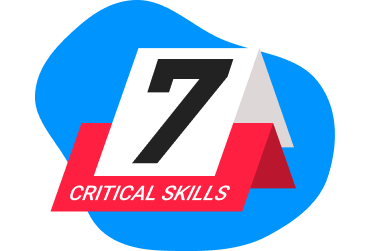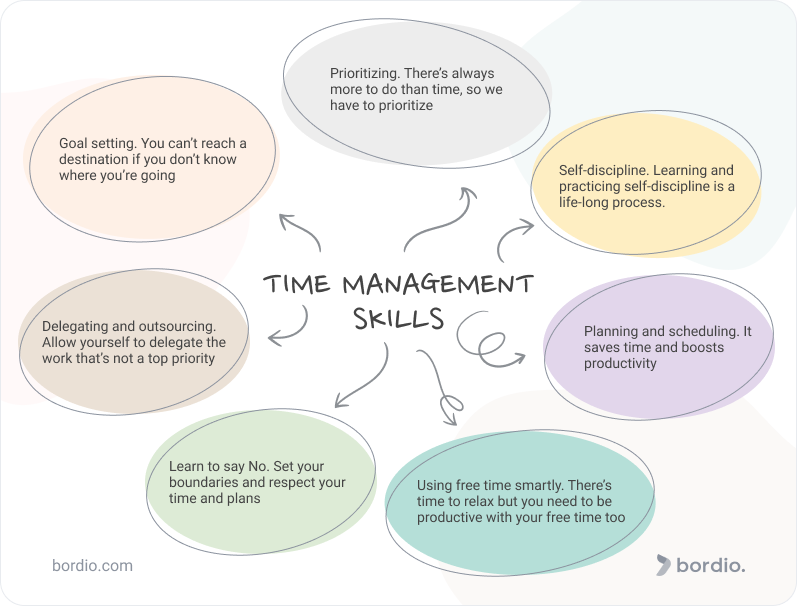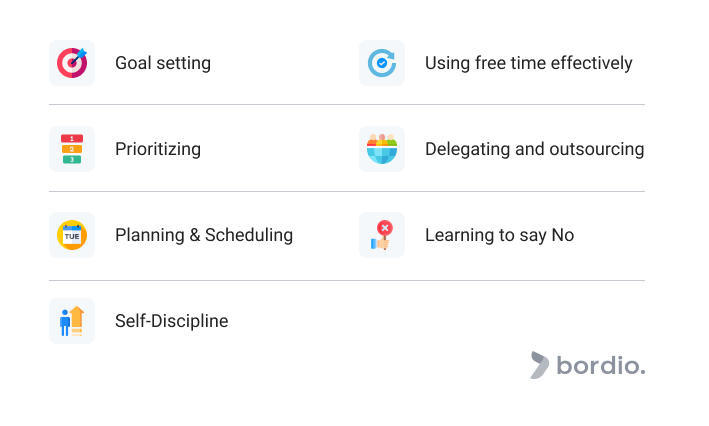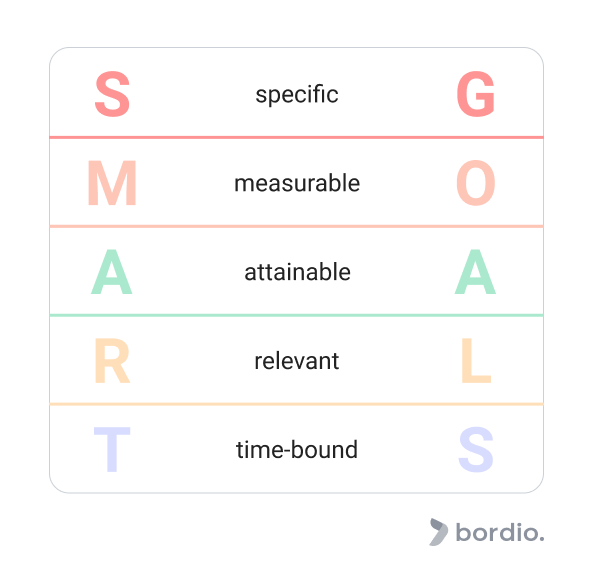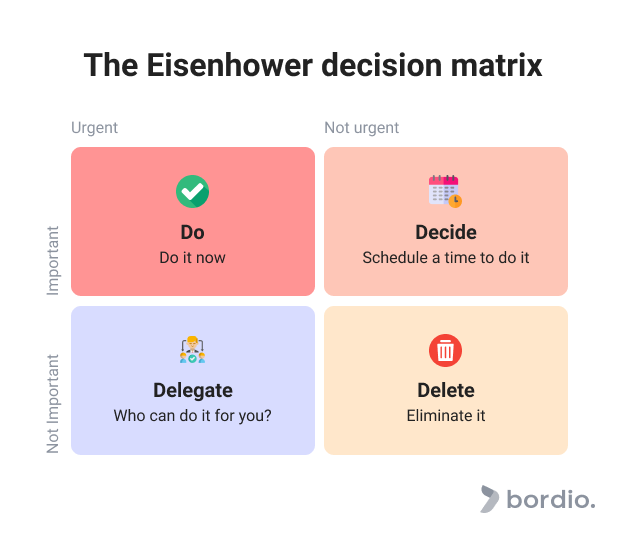While a lot of us have been forced to slow down over the last two years, the general trend is that we are becoming busier. As we are navigating the work-life, personal hobbies and aspirations, and socializing, it is clear that we need serious time management skills to balance all that and not go crazy.
We are not machines, and productivity isn’t everything, sure. But with the overwhelming amount of urgent and important tasks that we face daily, it is vital to improve time management skills. Otherwise, we will be swamped with more tasks than we can handle, and it can’t be good for our mental health. To ease your way to time management, you should use the best project management tools that will help you a lot both at the beginning of this journey and in the future.
Good time management skills will do wonders for your personal and professional lives. The skills are helpful in problem solving, prioritizing tasks, controlling stress levels, and ultimately making better use of our precious time.
Time management skills are not the same as time management techniques
We all know, in theory, that managing one’s time efficiently is good for goals achievement and stress management. However, it is with the actual skills that we are able to take action and get things done.
Let’s not confuse time management skills for time management theories! A skill is the ability to do something, whereas a time management technique is a facilitator that enables goals’ accomplishment. For example, you can have great planning skill, which is empowered by the Pomodoro or Eisenhower priority matrix. In order not to suffer from procrastination at work in the office and also at remote work use time management tools.
The 7 critical time management skills
Now, let’s dive into the absolutely critical skills for any adult regardless of your occupation and lifestyle.
A quick note: not all skills will be equally important, but all of them are necessary. You might focus on some more than the other depending on your previous experience with the fascinating world of time management. But please remember the golden rule of quantum physics: if you feel like you’ve mastered it, you probably have no idea what you’re doing. Put your to-do’s into a simple time planner and you’ll find it easier to improve your habits. So with that thought, we encourage you to keep an open mind and never be too cool to learn/practice something and of course use work management softwares.
Goal setting
Before you learn to do anything else, you must learn to identify and set goals. The best time management skills will not help you get where you need if you don’t know your destination.
Having defined goals is what allows successful people to not waste time on activities that don’t contribute to their end result (that is not to say that activities that don’t contribute to your goals are useless, but you get what we mean). Clear goals prevent us from getting swamped with urgent tasks that hold no meaningful value for our future. Just like how we might spend the whole day doing busy work (scrolling through emails, washing a ton of dishes, joining a couple of zoom calls) but not really achieving anything with it.
Tip: For more inspiration, check out the article about successful people tricks to planning their days.
How to set goals
If we try to cover all methods of working with goals, we will never finish this article. So, please let us know if you’d like to see a separate blog post from us dedicated to that topic specifically.
Here, we will cover a couple of rather common techniques that people use.
SMART goals. Don’t you love acronyms? There is some special magic with methods that use them. There are plenty of techniques like that (e.g., HARD goals, WOOP goals, OKR goals), but SMART goals seems to be the most celebrated one.
SMART stands for specific, measurable, achievable, realistic, and time-bound. So, instead of saying that you’d like to be rich and famous, you will specify that you want to become a famous movie actor, which can be measured by the number of paid roles you get. It is achievable and realistic because you don’t claim to become the best actor on Earth (although we definitely believe in you!). And you can put a deadline, for example – 10 years from now to have enough time to finish actor classes and go on all castings. By setting such prices and mastering techniques to the end, you will excel in time management, and you can also start using a convenience schedule maker for free.
Backwards goals. The backwards goal method breaks down the things you need to do before your goal can be achieved. It is a handy technique for those who can be intimidated by big aggressive goals. Say you are a recent high school graduate and want to eventually get a software engineer job at a FAANG company. Sounds pretty intimidating to us! However, let’s not panic and see what’s needed.
Here’s how we’d go about it (with fictional conditions):
- To get a job at FAANG, you will need to have a minimum of 1-year of relevant working experience at a tech company, so you will need to find a job somewhere.
- Tech companies typically require a Bachelor degree for the position you are interested in, so you need to apply to the universities.
- Additionally, you can research what universities are more appealing to FAANG and narrow down your application list.
- To get to a university, you need to write a motivational letter and get some volunteering experience.
- You need to start planning your motivational letter.
- You have to find a charity that you’d like to support and that needs extra help.
And there you go! Just like that, you have your action plan, with the first things on your agenda being a motivational letter and a volunteering experience. Not at all as scary as applying to Apple or Netflix.
Milestones and action steps
Almost as equally important as setting goals is dividing those goals into sub-goals and actionable steps. Like with our acting example, you will require a rainy day fund to keep you afloat while pursuing your dream. So you can start putting 100 USD away from your every paycheck. And find a side hustle to bring additional income. There’s also the education that every actor, ideally, needs to have. So you will find the list of courses that are must-have and enrol yourself.
Milestones are often used in project management to boost morale and help keep track of your progress. An example of a milestone with acting can be the moment when you no longer have performance anxiety.
For more information on goal setting and other productivity tips, check out the Productivity Tips Everyone Needs to Adopt article on our blog.
Prioritizing
Once you know and understand your goals and the steps you need to take to achieve them, it is time to work on your prioritization skills. For example, you can do that using a famous GTD Mind Sweep practice.
Unfortunately, we rarely get enough time to do it all, and some things are inevitably pushed back. You want to make sure that the tasks that go on the back burner are of low importance and priority.
Think of prioritizing as a filter. It skims through different tasks that need to be done and highlights the most important ones. That saves you from wobbling around doing things that do not align with your primary goals. Imagine working hard day by day. Then comes the end of the year, and you realize that you are not one step closer to your goals. It happens more than you think. There is always something urgent (or seemingly urgent) that pushes other activities out of your schedule. And the most effective way to control it is through prioritization. But remember the importance of flexibility; besides priorities, it is always important to be flexible in plans, to be able to interrupt something, and to control the situation better using a modern schedule builder.
Tip: Once you’re done prioritizing, make sure you schedule key tasks in your personal weekly planner first.
Using the tools. The Eisenhower matrix example
If you look at your daily to do list and feel overwhelmed, you can use the Eisenhower matrix, which is a reliable and simple method for prioritizing goals and tasks. In the same way, you can unload the online planner. The priority matrix is divided into four categories: urgent and important, urgent and not important, not urgent and important, and not urgent and not important. Naturally, you will first need to focus on urgent and important jobs, with the rest of the tasks handled depending on your preference. For example, the traditional matrix supposes that you will delegate urgent and non-important tasks, but this might not work in your circumstances.
Asking the right questions
Alternatively, you can skip the time management techniques and go with something as simple as your gut. Ask yourself the questions to support your decision-making:
- When does it have to be done?
- How long does it take to do it?
- How many people rely on me doing it?
- Does it align with my personal or business goals?
- Will there be serious consequences if I don’t do it?
There is really no right or wrong way to prioritize tasks, as long as you get a satisfactory outcome. Don’t get stuck on one particular way of doing it if you feel like you are not getting the best results. Prioritizing with the best task organizer should help you save time, stay focused on what’s truly important, and, hopefully, get enough sleep every night!
Planning & Scheduling
Many people dismiss planning and scheduling as dull and excessive activities. It often comes from some kind of negative experience, e.g. a person tried planning their week in their free calendar planner once, hated it, and gave up. The argument often is that you spend too much time on it, and the plans never work out anyways. We strongly disagree!
Planning is never a waste of time. Both short and long term planning is a strategic activity that can significantly improve and boost productivity.
The tools you use play a big role in your experience with scheduling and planning. The right solution will make the process sleeker and intuitive. Let’s look at Bordio, for example.
Bordio is a project and time management system that emphasizes the role of proper planning for better productivity and end results. When you open the app, you have the calendar, weekly schedule planner, and the waiting list on the right. The Waiting list is for all your tasks (immediate and long-term).
Once you’ve filled the Waiting list with the tasks, you can prioritize and divide them by colors. It’s fun and helps greatly to separate the tasks and instantly spot the categories you need.
Next, you start allocating the tasks in the calendar based on your availability and priorities. Now you have a visual representation of your workload, and there’s no need to keep countless to do lists spread across your notebooks, smartphone and whatnot.
You get a bird view of all tasks for this week, and you can schedule your days in the most efficient way. You look at your to do lists, quickly spot all the tasks that require your immediate attention and prioritize them accordingly. Next, you spot similar tasks, and you can batch them together for better efficiency.
Also, if you work with your schedule at the beginning of the week and notice that specific task where you need somebody else’s input, you can message them for assistance right away. In that case, if it takes them a couple of days to get back to you, you will still have plenty of time to finish the task, instead of realizing on a Friday afternoon that there is no chance for you to get it done by the EOD.
Besides helping you use time productively, planning and scheduling will greatly improve your output. And, very importantly, being mindful about your task lists and workload enables you to have regular breaks and avoid burnout.
A result of each planning session is a detailed plan. Already having that will quadruple your productivity, if not more. Why is that? When you have an action plan, you end up looking at it at least a few times during the week, making you more aware and on track. Without a plan, you have to go to your emails/messengers/social media to recap your job for the day and get sucked into it.
So, do you see where we’re going with it? A plan removes distraction and gives control. And then all that’s left is to follow the plan.
Self-Discipline
Imagine that you’ve identified and written down your goals, prioritized your tasks, planned and scheduled when you will do what. And then – nothing. Somehow it’s a few days later, and you can’t show much progress. Unfortunately, it is a common scenario that affects hundreds of thousands of people. And while we may find many reasons (=excuses), it is usually down to lack of self-discipline.
If you are experiencing something similar, please don’t be too critical of yourself. The thing is, being self-disciplined is not natural for most people. The good news is, it can be trained and learnt through practice! We’ve created a list of Best Productivity Books that all teach self-discipline and offer a unique approach to it, so have a look at pick one that fits you best.
So, what is self-discipline anyway? In simple terms, it is the ability to do something that needs to be done, regardless of whether you want to do it or not.
Self-discipline means delaying our comfort in return for long-term benefits and success. For example, you might be pushing through those 7 am gym sessions to get fit and healthy, despite not being a morning person and, therefore, struggling to wake up and get out of bed every single time. To discipline yourself, it is better to use precise daily schedule planners, distributing daily tasks.
Learning the skill of self-discipline is like learning to ride a bicycle. You just have to do it! Again and again, before you figure it out. Only unlike with the bicycle, self-discipline is not something you learn and forget, but it must be exercised regularly, or else you’ll lose the skill.
Everyone’s self-discipline journey will look different. But we will share a few tips that make sense for everyone:
- Try to remember why you’re doing what you’re doing. Go back to your goals regularly for that extra boost. Visualize your final results.
- Run a little internal analysis session. Find out the root cause of your troubles with being disciplined. Knowing it is half the battle.
- Cut down on group chatting. Notifications are major distractions. Every time you check your phone, you end up spending a couple of minutes after focusing back on your work and wasting even more time.
- Mute or remove social media from your phone. Have you ever noticed how you feel the urge to scroll your news feed when you are thinking hard about something? It’s because your brain is stressed and wants you to relax. So, if you find yourself looking at Facebook or Instagram too often – delete the apps or disable all notifications.
- Forget about the muse. Please don’t wait for the right moment because it will never come.
- Measure progress (however small).
- Take care of yourself: remember to be kind and forgiving when you are not on your A-game, and equally treat yourself when you are being good.
Focusing on your main task and not responding to distractions is not the easiest thing to do. But it gets better with time. Like Brian Tracy wrote in his book: ‘Everything is hard before it’s easy’.
And for more insight from Tracy and other renowned time management gurus, check out the list of best time management books.
Using free time effectively
Humans are not machines, so it is perfectly fine to lounge around and spend time resting, playing, or enjoying guilty pleasures. However, it might turn into an obstacle for your dreams and aspirations if it goes out of control.
We tend to overestimate how much we work and how many things we do when we often have a somewhat laid-back schedule in reality. With a little bit of awareness, we can reduce the time we wander idly and manage to go through our task list.
Let’s say you want to read more project management books but have no idea how to squeeze reading into your seemingly busy days. If you commute to work, you can read or listen to audiobooks on your way. You can also spend 10-15 minutes reading during your lunch break and generally read throughout the day when you are waiting on something or if you have a 10-minute break and reach for your phone for entertainment. If you are worried about sitting too much and moving too little, instead of spending another night playing video games, take that audiobook on a 30-minute walk in the evening. It’s a win-win!
Delegating and outsourcing
Knowing how to delegate tasks and doing it at the right moment is a crucial time management skill.
Many people turn down the idea of delegating tasks, and usually, it is down to maintaining control. The second most common reason is not willing to spend money for hiring an assistant or promoting one of your team.
However, working hours are not limitless, and offloading some tasks from your daily planner app, such as phone calls, will free up the space for difficult tasks or any urgent tasks that can come up. In other words, if you want to be productive, grow, and focus on the most important tasks, then delegation is inevitable.
Proper delegation heavily depends on trust and good communication. Remember that your team members are on your side, and they will do the job to the best of their ability. Help them by explaining exactly what is required of them, the nuances, and how you will evaluate the end result.
When you start outsourcing, try avoiding important tasks and pass on something less challenging from your to do list. After a while, you will get used to each others’ working styles and then will be the time to try and delegate an important task. If you are happy with the result then, – congratulations! You have just found a perfect person for delegation and can focus on difficult tasks.
An 8-step guide to delegation
We’ve put together an 8-step action plan to kick start your delegation journey:
- Decide what you want to delegate.
- Sit down and write a list of requirements/a checklist of what exactly should be done.
- Define your budget for the tasks. How much are you willing to pay someone for this job?
- Find a person who can do this task. Check their previous experience as you’d like the person to know what they are doing and be efficient.
- Explain the task to that person in detail. Share your requirements/checklist. Answer all their questions. Set a clear deadline.
- Wait until the person submits the completed task.
- Check the result against the requirements and see if any amendments are needed.
- After the work is approved, pay the contractor.
Pro tip 1: Never skip Step 2. Many people do and end up with dissatisfactory results, blaming the third party. However, the main issue here is not providing enough details and not setting a clear expectation. Things that are obvious to you may not be to other people.
Pro tip 2: Review the submitted work thoroughly every time. Don’t make the mistake of taking a glance, supposing that all is good, and then just approving the work. Once you say it’s okay and pay for the job, you close the door to final edits and changes.
Learning to say No
The final and, arguably, one of the most important skills in time management is saying no to people.
Something is unsettling in this short word. When you say No, you risk upsetting someone and even disappointing them. Right? Wrong! Saying No is ultimately about setting your boundaries and respecting your time and plans.
Others throw jobs at you all the time. Sometimes they don’t think twice before they do. Sometimes it’s a way to dump a tiresome task to someone else. Most of the time, if you say no, they’ll accept it just fine and find another solution.
If you never say no, how do you ever find time to do what you truly want? Chances are, your to do list is only getting longer, with urgent and important tasks pushing back the less time-sensitive jobs. And even if you feel like you have spare time to fit in one more task, you are mostly better off not taking on extra responsibilities and just relaxing.
How do you say no in the most polite way?
When someone asks you to do a job, and you realize that it doesn’t fit into your schedule, respond using this template:
“I’m sorry to say, but I have a very important task/project today/this week, so I don’t have any free time to do this.”
You are giving a legitimate reason why you will not be able to assist this time. So it doesn’t hurt the other person’s feelings and doesn’t leave the room to try and persuade you.
How to develop the important time management skills
Like with exercising and healthy eating, our issue is often not that we don’t know what to do, but actually doing it. And developing time management skills is no different. So, before we finish this article today, we wanted to share more tips and help you master your time and to do list.
First of all, think of time management as something that makes you free. Planning and staying diligent have a bad reputation for being boring and limiting when they are the opposite in reality. Just think how much mental energy (and time!) you waste on postponing the work, procrastinating, filling the time with non-essential tasks, and finally agonizing, stressing, and rushing to finish all your tasks before the deadline.
Instead of all this nightmare, you could spend the same time planning and executing the work, and dedicating the rest of the day to your passion projects, family, hobbies, or anything else.
Developing time management skills is very much a learning by doing thing. You just have to practice! To help you stay on track, exercise your self-awareness. Nobody really wants to look at themselves from a critical angle, but that’s where true growth happens. If you are procrastinating or getting distracted, sit back and acknowledge that. Ask yourself about the real reason for such behavior. Maybe take a short break and then get back to work.
If you have someone you can trust or call a mentor, ask them to give you honest feedback about yourself. And try not to get self-defensive. Otherwise, they will sugarcoat it for you the next time. It is very intimidating to listen to someone talk about your weaknesses and potential areas of improvement, so you might want them to send you the feedback via email or messenger. With that knowledge, you can narrow down the skills you need to improve or develop and start working on them.
Remember, practice makes perfect!
Final thoughts on time management skills
Soft skills are in high demand these days. And time management skills are no exception. Companies ask about them during job interviews. A project manager will hire you for an exciting project if you have the needed soft skills. Your personal life also becomes better with the right skillset.
Time management skills are what helps you make good use out of time management life hacks and methodologies. Goal setting helps you not get lost in the chaotic world of today. Prioritizing helps you focus. Planning and scheduling prevent burnout and missed deadlines. Self-discipline helps push through when it gets complicated. By knowing how to use your time smartly, you accomplish more without much stress. Delegating frees up your schedule for the most important tasks, and the ability to say No keeps your schedule free.
Learning new skills and implementing them into your life can be fun and rewarding. Far too often, people don’t live to their full potential due to the lack of time management skills. The good news is that it’s never too late to start!
